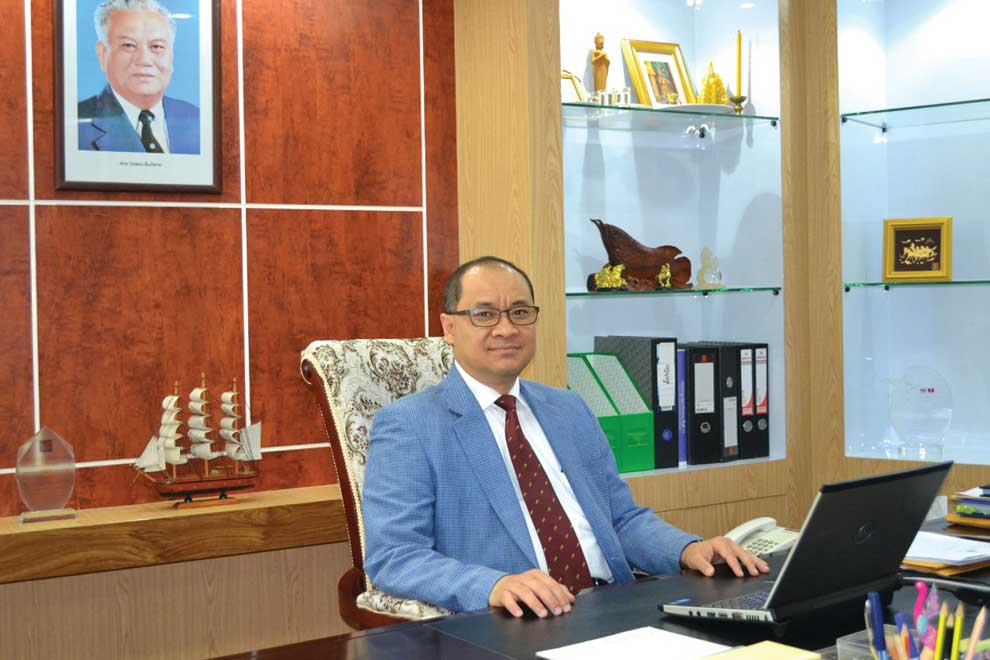
Lao Development Bank (LDB) managing director Akhom Praseuth.VIENTIANE TIMES
Alipay is available for use by Lao and foreigners at the state-owned Lao Development Bank (LDB). The bank is also preparing to step up cooperation with international partners overseas and is expected to list on the Lao Securities Exchange at some point in the future.
LDB has cooperated with China’s UnionPay and Alipay, both leading transaction technologies, and some foreign subsidiary financial institutions and Chinese bank operations in Laos, for kip and yuan transactions.
These developments are expected to raise the profile of the operations of the state-run commercial bank. Using technology to upgrade services and products is key for its plans to move forward and build trust among its clients and business partners.
LDB managing director Akhom Praseuth told Vientiane Times on Wednesday: “The bank is enhancing itself and continues to expand networks outside to pave the way for joining hands with other banks in the international arena.”
“To expand collaboration, we need to develop ourselves,” said Akhom, who was recently appointed to his post.
His targets include improving the banking system and management regulations, and preparing for joint ventures. Now the bank is proceeding with the required steps for listing on the stock exchange.
LDB was established on April 9, 2003, through a merger of the state-owned Lane Xang Bank Ltd and Lao May Bank Ltd.
LDB has launched the LDB UnionPay Debit card that can be used globally, and entered into an agreement with Kiwi Company Limited on July 30 to roll out the Alipay service in Laos to support Visit Laos-China Year and facilitate transactions by Chinese investors in Laos.
Kiwi is a leading fintech operator in Southeast Asia and provides cashless payment solutions to its clients.
Chinese nationals can now use the Alipay app to pay visa fees on arrival at the Boten international checkpoint in Luang Namtha province, which borders China’s Yunnan province, the 4th Friendship Bridge international checkpoint in Bokeo province, and Wattay and Luang Prabang international airports.
Alipay technology is used not only to collect visa fees, but also fees for people and vehicles.
Besides providing deposits and supplying loans to support small and medium enterprises and social and economic development in Laos, LDB offers clients several easier options for transactions through smartphones, such as payment of taxes, bills and fees.
Over the past six months, LDB’s deposits increased by three per cent and now account for 99.5 per cent of its annual plan.
LDB has 18 branches, 80 service units and 18 exchange services across Laos.
“These facilities make it very easy for people to use banking services. There is no need to go to the bank because parking is limited,” Akhom said.
Banks in Laos are now facing stronger competition. So far, over 40 banks have been established in the country and there are 190 microfinance enterprises.
Akhom said LDB plans to seek advice from Lao financial institutions about the introduction of new services.
LDB also has a joint venture with the Lane Xang Securities Company and Insurance Company. Akhom said both ventures are successful.




















